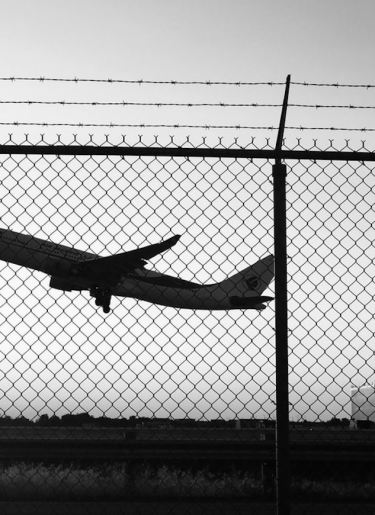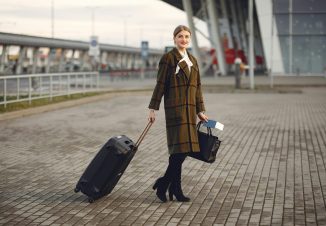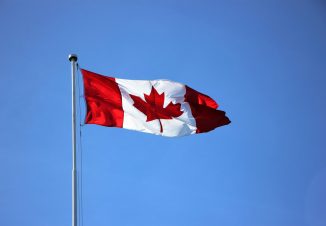
Argentina
Update on coronavirus restrictions on travel and mandatory home isolation
Argentina’s borders will remain closed until 16 August 2020 included, for non-resident foreign nationals.
The sale of air tickets is suspended until 1 September 2020. The National Civil Aviation Administration, has ruled that ‘Airlines that operate passenger air transport services from, to or within the national territory may reschedule their regular operations or request authorisations for non-regular operations from 1 September 2020’ (Resolution 144/2020 BO 27.4.20).
Mandatory home isolation remains in place until 16 August 2020, exclusively for people who reside or are in the metropolitan area (City of Buenos Aires and greater Buenos Aires), Jujuy Province, the departments of Atreucó, Catriló, Capital and Toay of La Pampa Province; the Güer Aike department of Santa Cruz Province; the department of Río Grande of Tierra del Fuego Province.
The rest of the country remains in the phase of ‘social, preventive and compulsory distancing’, where a minimum distance of two metres must be maintained between people, and all sanitary measures must be complied with.
(Decree 260/2020, Decree 325/2020, Decree 355/2020, Decree 408/2020, Decree 459/2020, Decree 493/2020, Decree 520/2020, Decree 576/2020, Decree 605/2020 and Decree 641/2020)
Anyone arriving in Argentina (nationals and residents) must home isolate for at least 14 days (Decree 260/2020).
Austria
Croatian nationals now have free access to the Austrian labour market
Starting from 1 July 2020, exactly seven years after the Republic of Croatia joined the European Union, Croatian nationals now have full access to the Austrian labour market, meaning they also now enjoy full freedom of movement for workers in Austria. Previously existing restrictions cease to exist, which is why Croatian nationals do not require any kind of work permit to be gainfully employed in Austria anymore.
Belgium
Covid-19 travel restrictions update
Within the EU, the Schengen states and the UK
From 15 June 2020, all travel within the EU’s internal borders, the Schengen states or the United Kingdom is possible again. However, for travel to and from Belgium, a distinction applies between red (ban on non-essential travel because of an unfavourable Covid-19 situation or because the country does not allow Belgians to enter the territory), orange (non-essential travel is discouraged because of an unfavourable Covid-19 situation or because the country imposes restrictions on Belgian travellers) and green zones (travel is possible without additional restrictions) and, if necessary, measures must be taken upon return (see here). The zones are published on the Foreign Affairs website. Note that the zones only cover non-essential travel; essential travel may well be allowed.
As a result of the reopening of internal borders, certificates for frontier workers to cross borders for work are no longer needed.
Outside the EU, Schengen and the UK
Belgium has decided to not yet follow the European Commission’s recommendation to reopen its external borders for residents of 15 third countries and the prohibition on travel from outside the EU, the Schengen states and the UK continues to apply. These travel restrictions do not apply to the following individuals:
Belgium
Conditions imposed on travellers to Belgium
Belgium has reopened its internal borders but countries within the EU, the Schengen states and the UK are divided into three colour zones (red, orange and green zones [see here] and the Foreign Affairs website to determine if sanitary measures must be taken when arriving in Belgium.
Quarantine and a Covid-19 test are in principle:
Quarantine is also the rule for essential travel (such as professional travel) from red zones. It is only possible to deviate from this if this quarantine would prevent the ‘essential aspect’ of the travel from continuing. Quarantine may only be lifted to fulfil the essential travel purpose (e.g. a meeting) and only to the extent that this activity cannot be postponed. During the activity, social distance and other protective measures should be scrupulously observed.
The ‘Public Health Passenger Locator Form’ allows travellers to be contacted if an infection is detected and to initiate contact tracing if necessary. This form must completed (electronically or in writing) for all travel to Belgium and must be presented before boarding if travelling with an organised transport carrier (airline, rail company, etc.). For travel to Belgium by other methods, the form must be completed for stays in Belgium of more than 48 hours and provided the traveller was outside Belgium for more than 48 hours before coming to Belgium.
Belgium
Impact of Covid-19 on salary thresholds for work permits and single permits
For some work permit or single permit categories, an annual salary threshold applies (e.g. for highly skilled third-country employees). As a result of reduced activities because of Covid-19, many employees are on temporary unemployment or employment contracts are temporarily suspended. Since employees do not receive salary or only receive it at a reduced rate during these periods, this has an impact on annual salary.
The Flemish Region has announced that a period of temporary unemployment is not taken into account when calculating the salary threshold, regardless of whether the employee receives a benefit from the National Employment Office (‘NEO’) because of Covid-19 temporary unemployment. In other words, in the calculation, the gross annual salary will be reduced pro rata with the relevant period of unemployment.
The Brussels Capital Region has announced that it will be flexible with regard to salary thresholds and will take the exceptional situation into account, on condition of a clear justification at the time of the application for renewal or annual check. It is advisable to include certain supporting documents such as certificates from the NEO.
The Walloon Region has also announced that periods of temporary unemployment in the period from 1 March until 31 August 2020 will not be taken into account when calculating the salary thresholds if an NEO certificate together with the individual 2020 account is submitted. Besides, for posted workers whose contract has been suspended due to Covid-19, the period between 1 March and 31 August 2020 will not be taken into account to verify compliance with the salary thresholds. To that end certain documents must from now be sent to the administration:
Belgium
Revised Posted Workers Directive: formalities to extend initial 12-month period to 18 months for long-term postings
As announced in our previous update, from 30 July 2020, foreign employers must comply with a more extensive package of Belgian salary and employment conditions for workers posted to Belgium after an initial posting period of 12 months.
However, the foreign employer may be exempt from this more extensive package for an additional six-month period on the condition of submitting a notification with reasons. This notification must be sent to the social inspectorate before the end of the 12th month of the posted worker’s employment in Belgium.
The way in which the notification with reasons must be sent was set out in a Royal Decree of 15 July 2020 and depends on the posted worker’s situation:
Both the electronic form and the email must include some mandatory information, such as the reasons for the temporary non-application of the more extensive package.
Brazil
Current coronavirus travel restrictions in Brazil
On 29 July 2020, the Brazilian Government issued further restrictions on entry of foreign nationals by land or sea, allowing entry by air for foreign nationals who have the appropriate visa (if needed) to enter Brazil.
The restrictions do not apply to:
With the exception of Venezuelans, the following foreign nationals are also exempt from the restrictions:
Entry restrictions do not prevent:
The restrictions also do not prevent:
Exceptionally, a foreign national in a land border country who needs to enter Brazil to board a flight back to his/her country of residence can, with authorisation from the Federal Police, as long as he/she goes directly to the airport and presents an official request from the embassy or consulate of their residence country and appropriate air tickets.
For air entry, for which no restrictions apply other than a visa (if needed), foreign nationals on short-stay visits (up to 90 days) must present the air company with proof of valid health insurance in Brazil covering the entire trip prior to boarding, on penalty of being refused boarding.
International flights arriving at the following airports are temporarily prohibited:
Ordinance No. CC-PR/MJSP/MINFRA/MS Nº 1 is valid for 30 days from 29 July.
Canada
Biometric requirement for in-Canada temporary resident applications is temporarily suspended
On 15 June 2020, Immigration Refugee and Citizenship Canada (‘IRCC’) announced a temporary exemption to the requirement to provide Biometrics (fingerprints and a photo), for foreign nationals applying for temporary status from inside of Canada.
This is welcome news: biometric collection locations in Canada have been closed since March which has meant that in-Canada temporary applications have essentially come to a stand-still. For those who have already paid the biometric fee for an application already in process, IRCC has confirmed that they will automatically refund those fees once the application is finalized.
This exemption also applies to foreign nationals who have applied for a permit through a visa office outside of Canada, but are physically present in Canada at the time of application.
We expect that this announcement will allow IRCC to return to regular in-Canada work permit processing timelines.
Note that this exemption only applies to applications for temporary residence in Canada. In-Canada applicants for permanent residence are still required to include the appropriate Biometric fees and provide Biometrics when requested. IRCC has allowed for an extension of time to provide Biometrics for permanent residence applications while Biometric collection centres in Canada remain closed due to the pandemic. Anyone applying for a work or study permit or visitor record from outside of Canada is still required to pay the Biometric fee (CAD 85) and provide biometrics. Many Biometric collection locations worldwide have now re-opened with limited services.
Canada
Policy change for some out-of-status foreign nationals
On 14 July 2020, Immigration, Refugees and Citizenship Canada (‘IRCC’) announced two important public policy changes that will assist Canadian employers and foreign workers during the Covid-19 pandemic.
The first update surrounds restoration of status. Normally, if a foreign national in Canada remains in Canada beyond the validity of their permit, they may apply for new status and to ‘restore’ their lost status, only if they submit that application within 90 days of losing that status. As of 14 July 2020, IRCC will allow any foreign national who has lost status since 30 January 2020 to apply to restore their status up to 31 December 2020.
The second public policy update will allow for interim work authorisation for certain workers who have temporarily lost status. Certain foreign nationals who previously held a work permit and lost status after 30 January 2020 will be eligible to request authorisation to work while waiting for their new work permit and restoration of status to be processed. Previously, a foreign worker who lost status was required to wait until the new permit and restoration of status were approved before resuming work. This change is only accessible to foreign nationals who:
In order to request interim work authorisation, the applicant must submit a Web Form to IRCC, asking that the public policy exemption be applied, based on the work permit and restoration of status applications made.
If the request is approved, IRCC will email the Temporary Foreign Worker (TFW) to confirm that their request has met the eligibility criteria under the public policy. If the request is denied, an email from IRCC will be sent to the foreign national and they will be advised they do not meet the requirements of the public policy and cannot work until their new work permit and restoration of status is approved.
This change will be a great benefit to employers, who will no longer have to wait months for an employee to return to work should they fall out of status.
Katie Van Nostrand, Partner and Natasha Lakhani, Associate Mathews, Dinsdale & Clark
Europe – European Court of Justice
ECJ clarifies who is employer for social security purposes where there is simultaneous employment in several member states
Where employees are in simultaneous employment in several members states they are subject to the social security regime in their residence state if they work a substantial part (25 %) in that state. If not, they are subject to the social security regime of their employer’s registered office.
On 16 July 2020, the European Court of Justice ruled in the AFMB and others case (C-610/18) that for those provisions, the employer of an international long-distance lorry driver is the company which has actual authority over the driver, which actually bears the wage costs and which has the actual power to dismiss the employee and not the company with which the long-distance driver has formally concluded the employment contract.
AFMB, a Cypriot company had concluded contracts with Dutch transport companies under which AFMB undertook, in exchange for commission, to take charge of the management of the heavy goods vehicles and the employment contracts with the long-distance lorry drivers in which AFMB was named as the employer. However, the long-distance lorry drivers lived in the Netherlands and worked in several member states but not substantially in the Netherlands. Further, before concluding their employment contracts with AFMB, they had been chosen by the Dutch transport companies and worked on behalf of and at the risk of the Dutch transport companies which in reality bore the actual wage costs via the commission paid to AFMB and had the actual power of dismissal. Finally, several long-distance lorry drivers were employed by the Dutch transport companies prior to their employment with AFMB.
The outcome of the ECJ’s decision is that the long-distance lorry drivers should be subject to Dutch social security instead of Cypriot social security (but that is to the referring court to decide).
Finland
Update on the impact of Covid-19 on immigration and global mobility in Finland
The Finnish Government has begun to lift travel restrictions due to the positive progression of the Covid-19 situation in Finland. Both internal and external border traffic restrictions have been reassessed with the criterion of the country having fewer than eight new cases of the disease per 100,000 persons in the previous 14 days. Travellers returning from these countries do not have to stay at home in quarantine-like conditions. The Government will reassess the need for and extent of the restrictions on entry every two weeks based on the epidemiological situation.
The list of countries and more information as of 23 July is available here.
Finnish missions abroad have also begun to open for residence permit interviews, but this varies regionally according to the local Covid-19 situation.
Hungary
New travel restrictions implemented in Hungary
As of 15 July 2020, the Hungarian government has implemented new travel restrictions as a response to the increase in novel coronavirus cases in nearby countries (Gov. Decree No. 341/2020. (VII. 12.); the ‘Gov. Decree’). The travel restrictions only affect passenger traffic.
The Gov. Decree introduces three colour-coded categories for countries (or regions within countries) based on infection rates. Countries are classified as ‘red’, ‘yellow’ or ‘green’, for high, medium and low infection risk respectively.
The chief medical officer is responsible for classifying countries and regions through decrees, which are then published in the Hungarian Official Gazette. Unclassified countries are considered green for the purposes of travel restrictions. If a country is classified as red or yellow, the chief medical officer may specify certain regions within that country as green if the infection rates are low in those regions.
Most EU member states are in the green category, with the exception of Sweden, Norway, Bulgaria and Romania.
At the time of writing, the following countries are classified as yellow: UK, US, Canada, Sweden, Norway, Bulgaria, Romania, Serbia, Russia, Japan and China.
153 countries have been classified as red, including for example: Ukraine, India, Israel, Turkey, all American countries (except the US and Canada), all Asian countries (except Japan and China), all African countries and all countries of Australia and Oceania.
The Gov. Decree also differentiates between Hungarian and third-country nationals. For the purpose of the travel restrictions, third-country nationals and their family members are treated as Hungarians if their travel documents prove that they are entitled to permanent stay in Hungary, or if they have obtained a temporary permit issued by the authority responsible for policing immigration, allowing them to stay for longer than 90 days.
For details of the applicable restrictions, see here.
Italy
Covid-19: Regularisation of illegal workers and delay in the Decree Law on migration flows
The Italian Government has issued many regulations aimed at dealing with the particular situation linked to the Covid-19 crisis.
In this context, the so-called ‘Decreto Rilancio’ (Relaunch Decree, Decree Law no. 34/2020, see here) provides for an extension of residence permits and the regularisation of the immigration status of employees illegally working in specific sectors as agriculture or fishing.
With reference to immigration, in the first months of every year the Italian government approves a Decree Law (known as the ‘migration flows’ decree), setting the maximum number of work permits for non-European citizens that can be issued to work in the Italian territory. However, this year such Decree has not been implemented yet, raising concerns for employers that are waiting for it.
Luxembourg
Law extends the effects of derogatory Covid-19 immigration measures
A law of 20 June 2020 to temporarily extend the effects of certain derogations taken in the context of the fight against Covid-19 in immigration matters came into force on 25 June 2020.
The three-month period (in article 40 of the amended Law of 29 August 2008 on the free movement of persons and immigration, the ‘Law’) within which the third-country national authorised to enter Luxembourg must apply for a residence permit, is increased to six months for third-country nationals who have made a declaration of arrival to the municipality of their place of residency in Luxembourg, in accordance with the Law, between 1 January 2020 and 31 July 2020.
The period of validity of residence permits that expire after 1 March 2020 is extended until 31 August 2020.
The stay of third-country nationals holding a short-stay visa, as well as the stay of third-country nationals not subject to any visa requirement and whose stay has just exceeded ninety days after 1 March 2020, is considered as regular until 31 July 2020.
Following the recommendations of the European Commission concerning the temporary restriction on non-essential travel to the EU, the Law and its grand-ducal regulation of 1 July 2020 also provide for:
from 1 July 2020, a new category of individuals exempt from the temporary ban on entering Luxembourg territory because of their residence in a third country for which temporary restrictions have been lifted.
Russia
Suspension of migration terms extended
On 15 June 2020, the Russian President signed a Decree extending a temporary suspension of migration terms set previously on 18 April.
According to this Decree, the validity period of migration documents (such as visas and residence permits) for all foreign nationals legally residing in Russia, is automatically extended if they expire from 15 March until 15 September 2020.
Russia
Foreign employees cannot work without migration documents after 15 June 2020
Starting from 16 June 2020, permission to hire foreign employees without work permits (for foreign nationals requiring a visa) or migration ‘patents’ (for visa-free foreign nationals) ceased to be valid. Foreign employees must obtain the appropriate migration documents to be employed in Russia.
However, according to the presidential Decree dated 15 June 2020, foreign citizens can obtain, extend or renew work permits or migration ‘patents’, regardless of the purpose of entry specified when entering Russia.
Russia
Obligatory Covid-19 testing for foreign nationals entering Russia
On 15 June 2020, the Russian Ministry of Health enacted an order including Covid-19 in the list of dangerous infections.
Starting from 27 June 2020, all foreign nationals entering Russia must take a Covid-19 test. Otherwise, or if they test positive for Covid-19, migration documents (such as visas, work and residence permits) may not be issued and the existing documents may be annulled.
Russia
Highly Qualified Specialists can enter Russia
Highly Qualified Specialists (HQSs) are entitled to enter Russia once under a Government Order dated 25 June 2020. However, the following requirements shall be met simultaneously:
Information on the crossing border point and date of arrival must be indicated in the list described above.
Russia
Compulsory 14-day self-isolation ends in Russia
From 15 July 2020, the compulsory 14-day self-isolation related to coronavirus for people arriving in Russia is cancelled. Starting from 15 July, travellers will have to provide a certificate of a negative Covid-19 test or take a Covid-19 test in Russia within three days of their arrival.
When crossing the state border into Russia, foreign nationals need to inform the officials carrying out sanitary-epidemiological control of their negative Covid-19 status by providing a medical certificate (in Russian or English), confirming the negative result of the polymerase chain reaction (PCR) test. The test should have been taken no more than three calendar days before arrival in Russia and confirm the detection of antibodies of immunoglobulin G.
If the PCR test is positive, travellers must comply with the self-isolation requirements at their place of stay until full recovery and a negative PCR test result.
Employers must inform all employees travelling abroad about the requirement to undergo the PCR test within three calendar days from the date of return to Russia. Moreover, employers must check the medical certificate (in Russian or English), confirming the negative result of the PCR test taken within three calendar days before arriving in Russia when employing foreign nationals.
Serbia
Serbia opens its borders
There is no longer a ban on the entry of foreign nationals into Serbia, or mandatory quarantine (except for citizens of Montenegro) upon entry. All individuals entering Serbia, are given a written notice during passport control with a health warning, in both Serbian and English, about the measures to be followed to prevent the occurrence and spread and to promote the suppression of Covid-19. At the time of writing, there have been no announcements on closing the Serbian borders.
UK
UK Government announces new visa route for Hong Kongers
On 1 July 2020 the UK Government announced a new visa scheme for the approximately 2.9 million existing British Nationals (Overseas) from Hong Kong, along with their dependants who are usually resident there.
The new visa will allow the holder to live, work and study in the UK for five years. An application for indefinite leave to remain will be possible after five years’ continuous residence.
The existing laws for acquiring British citizenship are likely to be applied, which will mean that most adults granted indefinite leave under the scheme will become eligible to apply for British citizenship after a year holding that status. Children born abroad will normally become eligible for British citizenship at the same time as their parents, whilst children born in the UK may apply for citizenship once at least one of their parents has been granted indefinite leave.
Specific details of the scheme, including the relevant application fees and process, are due to be announced in the coming months. It is likely the application process for the visa will be streamlined and efficient, using the EU Settlement Scheme as a model.
Sophie Maes has been a partner at our Belgium firm, Claeys & Engels, since 2009. Within Ius Laboris she is member of the Executive Committee and chairs the Global Mobility and Immigration Expert Group.



